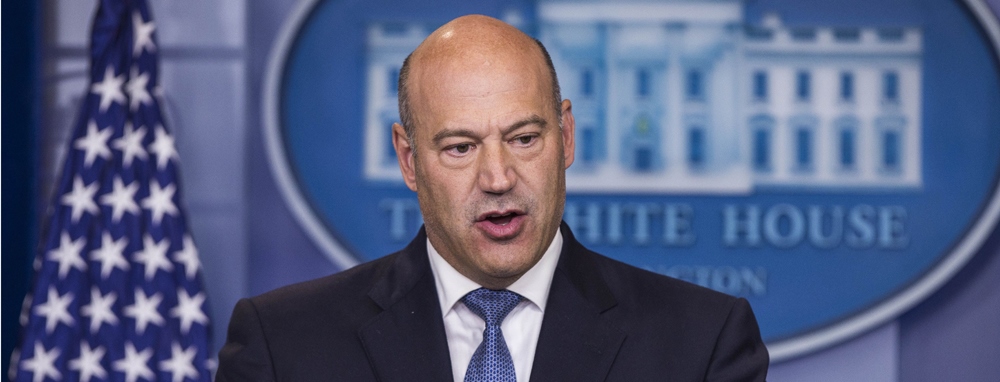Cohn leaves the White House
March 7, 2018 | Expert Insights

Gary Cohn, the chief economic advisor to US President Donald Trump has resigned from his position after clashing with the US president over tariff rates.
Global markets fell as this news emerged, and oil prices have fallen as well.
Background
President Trump is known to have a protectionist outlook on trade. On the campaign trail, he promised tariffs against countries such as China, whom he blamed for loss of jobs. He also criticized “bad” trade deals and “unfair trade practices” against America. He said that other countries were "dumping vast amounts of steel all over the United States, which essentially is killing our steelworkers and steel companies”.
Since taking office, the president has withdrawn from the Trans-Pacific Partnership, and initiated the renegotiation of the North Atlantic Free Trade Agreement. In recent months, experts have begun sounding the alarm about an impending trade war between the US and China, the two largest economies in the world.
The US is highly reliant on steel imports. American steel production has fallen from 112m tons to 86.5m tons since 2000. Employment provided by the industry has fallen from 135,000 jobs to 83,600 jobs. Gary David Cohn is an American investment banker who is currently the Director of the National Economic Council and is chief economic advisor to President Trump. He was formerly the president and chief operating officer of Goldman Sachs from 2006 to 2017. At one point he was considered one of the most prominent members of the Trump administration.
Analysis
In recent weeks, Trump announced his intention to impose tariffs of 25% on imported steel and 10% on imported aluminium “for a long period of time”. The President cited “national security” in order to circumvent WTO commitments. Media reports stated that this move was against the counsel of many of his advisors including Cohn. Trump was also criticized openly by congressional leaders in his own party. However, Trump has remained steadfast in his original commitment.
Shortly after the tariffs were announced, Gary Cohn announced his intention to resign. His resignation is the latest in a series of high profile departures in recent weeks at the Trump White House. In a prepared statement, Cohn said, "It has been an honor to serve my country and enact pro-growth economic policies to benefit the American people, in particular the passage of historic tax reform. I am grateful to the President for giving me this opportunity and wish him and the Administration great success in the future.
In his own statement, Trump said, "Gary has been my chief economic advisor and did a superb job in driving our agenda, helping to deliver historic tax cuts and reforms and unleashing the American economy once again. He is a rare talent, and I thank him for his dedicated service to the American people.”
Even though Cohn was a prominent member of the administration, there have been fears for a while now that his disagreements with the President would result in him leaving. Last year media reports stated that he had considered resigning following Trump’s response to the Charlottesville hate crimes. Wall Street views Cohn extremely favorably and experts have stated that Cohn’s departure would result in a slump in the stock market.
Sure enough, futures trading pointed to a sharp 1.3% drop in shares on Wall Street. He is seen as pro free trade and his departure cast a doubt on a number of trade deals. Oil prices also dropped once it was confirmed that he had resigned.
Trump has noted that there are a number of candidates that are being considered. He took to Twitter to state, “Will be making a decision soon on the appointment of new Chief Economic Advisor. Many people wanting the job - will choose wisely!”
At a later press conference, Trump doubled down on his position noting, “The United States has been taken advantage of by other countries, both friendly and not so friendly, for many, many decades, and we have a trade deficit of $800bn per year, and that’s not going to happen with me. The European Union has been particularly tough on the United States. They make it almost impossible to do business with them, and yet they send their cars and everything else back into the United States. They can do whatever they like but if they do that, then we put a big tax of 25% on their cars and believe me, they won’t be doing it very long.”
Assessment
Our assessment is that Trump’s position on tariffs is unpopular internationally and even ally nations have expressed their apprehension. Experts state that this could result in an increase in steel prices that would also affect American companies. Cohn’s departure will be a source of concern for the markets as he was also behind the massive tax cuts that were introduced last year. Additionally, these high attrition rates paint a portrait of chaos within the Trump administration.








Comments